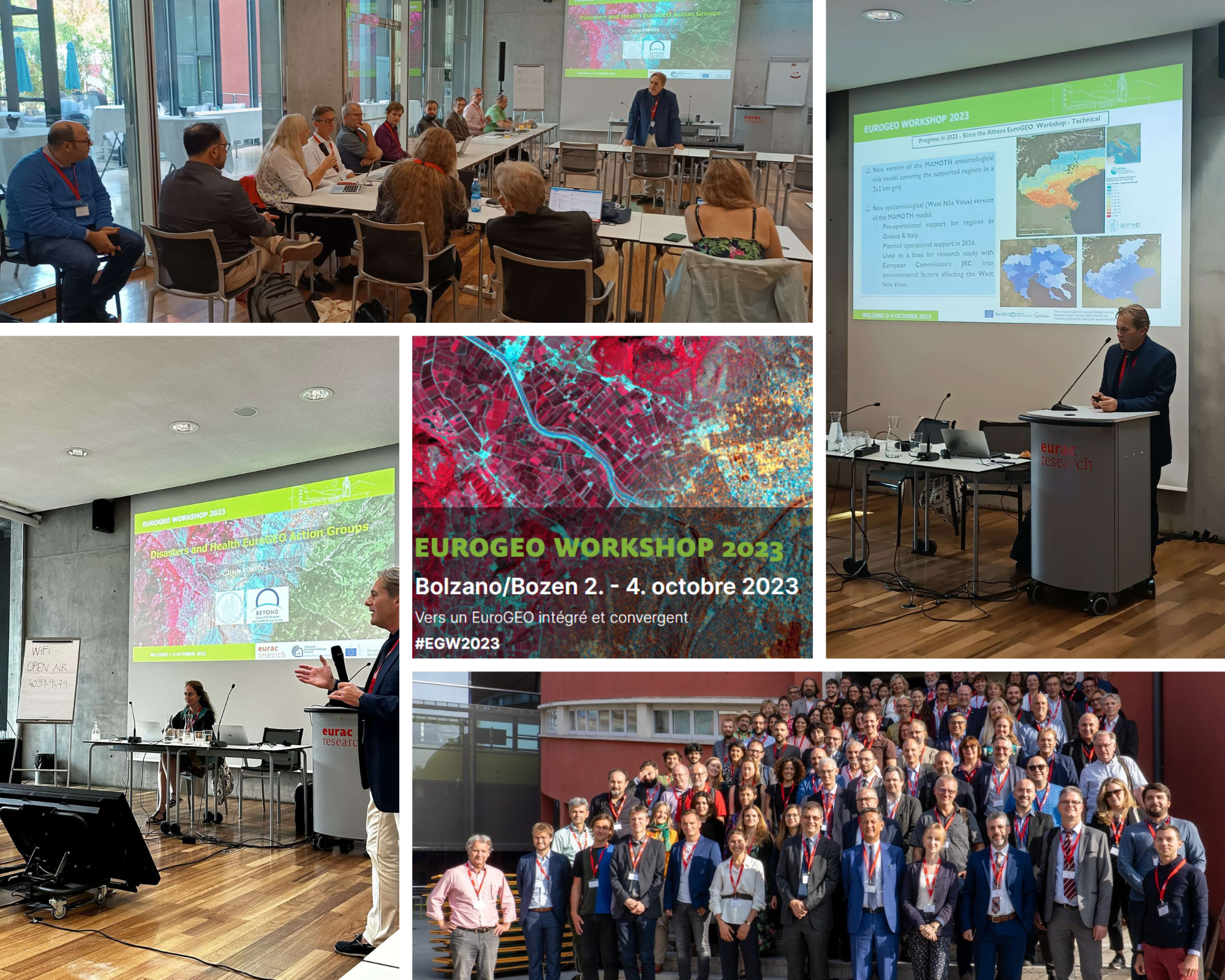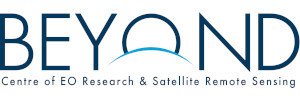
The Operational Unit BEYOND of IAASARS/NOA had an elevated presence in EuroGEO Workshop 2023 organizing three (3) sessions.
In particular:
Parallel session “EuroGEO Action Groups Disasters & Health”, 2/10/23
Dr. Haris Kontoes, Research Director of National Observatory of Athens (NOA) and Scientific Director of the Operational Unit BEYOND of IAASARS/NOA introduced the EuroGEO Action Groups Disasters & Health and chaired an open discussion with the participants. Interesting feedback was collected regarding the link of EuroGEO with national activities, as well as the contribution of EuroGEO to the GEO Community and the GEO-post 2025 strategy.
The Chairpersons had the opportunity to collect the key focus points from the session regarding how their session focus area and speakers presented expertise that can support the EuroGeo Community at large and the Post Geo 2025 Strategy. This input will be consolidated into two outputs lead by the JRC; an event report and a Ministerial Brief will be presented at the GeoWeek Ministerial Week in Cape Town.
Parallel session “Addressing climate-induced disasters and health challenges: The contribution of EuroGEO and GEO-CRADLE initiatives and the way forward”, 3/10/23
This session aimed at supporting sustainable development through the integration of Earth Observations in user-oriented and co-designed services for addressing climate induced disasters and health issues. In particular, the session focused on:
- Showcasing success stories supported by EuroGEO (e-shape, as well as the Disasters and Health Action Groups) and GEO-CRADLE initiatives.
- Reporting on the scientific/service progress of relevant Actions Groups and relevant communities.
- Defining concrete roadmaps towards long-term sustainability of the on-going actions and services.
- Promoting full and open access to EO data and science, and showcase business models for exploiting/sustaining the generated knowledge and services for the benefit of cross-sector stakeholders and communities with varying needs.
- Designing future joint actions (e.g. policy papers / publications / special editions in journals / workshops / webinars / information days for applications and services) with the support of the EuroGEO Secretariat and relevant CSAs (e.g. GEO-CRADLE, COERNICUS FPCUP, GEOHEALTH, etc).
- Creating synergies for long-term impact on GEO post 2025 strategy to address global climate-induced disasters and health crises.
Dr. Haris Kontoes chaired the session, which included 8 presentations and a round table discussion with the speakers. He presented “EYWA: Early Warning System for Mosquito-Borne Diseases” and Alexia Tsouni, Research Associate of Operational Unit BEYOND of IAASARS/NOA presented “GEO-CRADLE: GEO Capacity Building in North Africa, Middle East, Balkans and Black Sea Region”. A constructive discussion followed, and its key points were reported to the plenary the next day.
World Café “Shaping EuroGEO: Synergies and links between EuroGEO, Copernicus, and national GEO activities”, 4/10/23
This session aimed at discussing the strategic orientations for EuroGEO and the work of the EuroGEO secretariat in the future. More specifically, the discussion was focused on the needs and concerns of the Action Groups, with regards to receiving advice and counselling. Alexia Tsouni who chaired this session, collected inputs towards further improving the synergies and links between EuroGEO, Copernicus and national GEO activities. Achievements, challenges and the way forward were identified. The key points of the discussion were reported to the plenary the same day.
After 3 interesting sessions, more than 100 participants engaged with the GEO-CRADLE GEO initiative as well as with the EuroGEO Action Groups Disasters & Health through fruitful discussions and networking.
More Info: https://egw2023.eurac.edu/
#EGW2023
